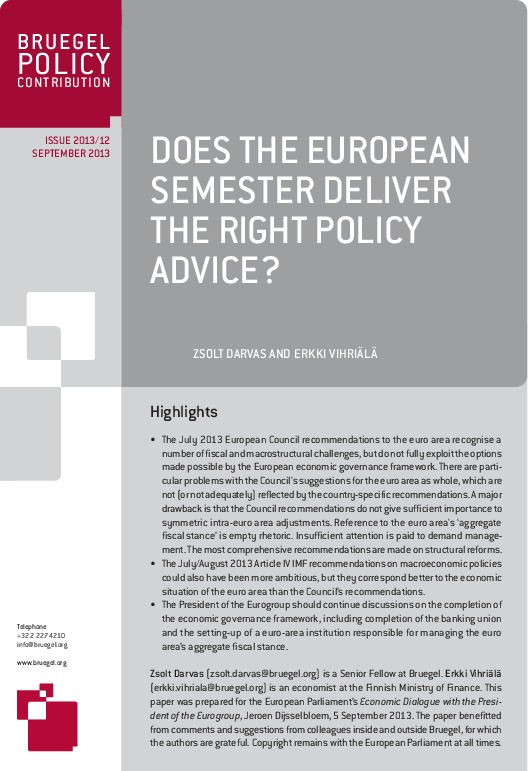External authors

Erkki Vihriälä
Research Assistant
Erkki, a Finnish citizen, holds an MSc Economics from the London School of Economics in addition to a Bachelor’s degree from the University of Helsinki. Prior to joining Bruegel, Erkki worked as an intern at the Bank of Finland. There he studied the fundamental determinants of current accounts and considered the need for global adjustments in external positions.
Erkki’s core interests include empirical macroeconomics, monetary economics and financial economics. He is fluent in English, French and Finnish.




